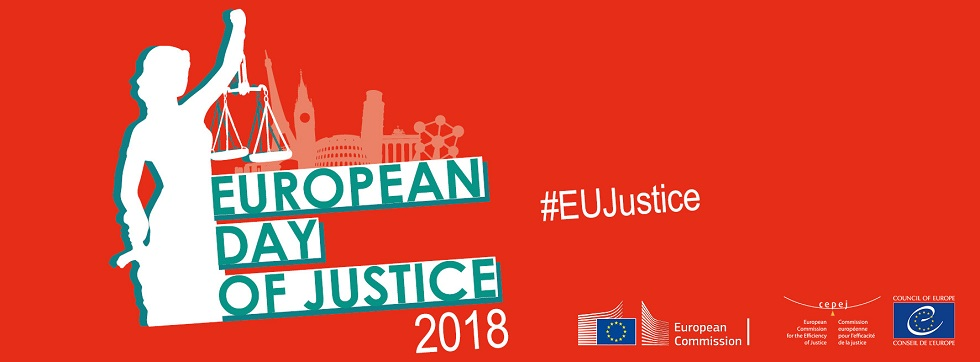As part of the celebration of the European Day of Justice, from September to November 2018 several Council of Europe Member States are organising various events aimed at informing citizens about their rights; in particular open door events in courts or notarial chambers, as well as live broadcasts of the recent publication of the CEPEJ report "European Judicial Systems - Efficiency and Quality of Justice" via CEPEJ's Facebook page. A live debate with the European Law Students Association (ELSA) will be organised, based on this theme on 25th October at 10 am via the social network platforms. Created in 2003 and now in its 15th year of commemoration, this day is a unique opportunity for users to learn about their rights, and for students and legal professionals to benefit from online knowledge-sharing sessions. The courts and institutions participating in this event can download the official publicity for the European Day of Justice and customisable posters on the CEPEJ website.
More information about the European Day of Justice
More information about the CEPEJ 2018 Report "European judicial systems - efficiency and quality of justice"




